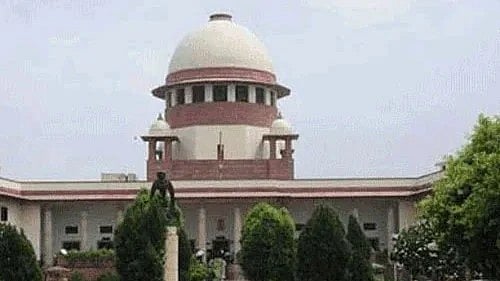
The Supreme Court of India
Credit: PTI Photo
New Delhi: The Supreme Court has emphasised that interference in a matter where a person comes before the court seeking anticipatory bail does not, and should not, automatically lead to the presumption that custody would be required and he/she would be arrested.
A bench of Justices Ahsanuddin Amanullah and S V N Bhatti said that the arrest is the discretion of the investigating agency, depending on the circumstances and the conduct of the accused.
"The investigating agency is obliged to take an objective view on the requirement of custody of an accused without any bias, ill-will, or any other extraneous consideration and purely based on material,'' the court said.
The court clarified the position of law in its recent judgment while allowing a plea by the Andhra Pradesh government led by Additional Solicitor General S V Raju and senior advocate Sidharth Luthra against the High Court's order which granted anticipatory bail to former CID chief and senior IPS officer, N Sanjay.
The officer was accused of making payment of Rs 59 lakh to a contractor without fulfilling contractual obligations of developing a website and a mobile app, when he worked as DG, fire services. The 1996-batch IPS officer was also accused of making similar payment during his stint as CID chief for spreading awareness on the SC/ST Act.
The bench said, ''It is true that custodial interrogation is considered a last resort, to be adopted when the investigation is impeded by deliberate lack of cooperation or by factors which militate against upholding the law, or against public interest.''
''However, for this court, and in the emerging factual background, the consideration is not limited to whether a person is merely required for custodial interrogation. The larger issue that comes to the fore is whether any person, no matter how high the office he holds, is to be treated on an equal footing by law, like a common citizen,'' the bench added.
Setting aside the High Court's order of January 30, 2025, the court directed the investigating agency to act in a non-partisan manner, focusing on the actual merits of the case based on proper factual aspects and records, and to conclude the investigation at the earliest.
The court, however, allowed the officer four weeks time to surrender.
